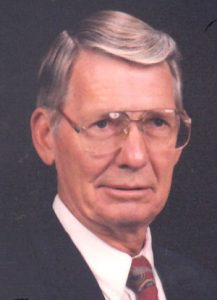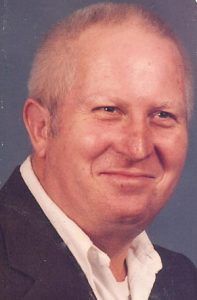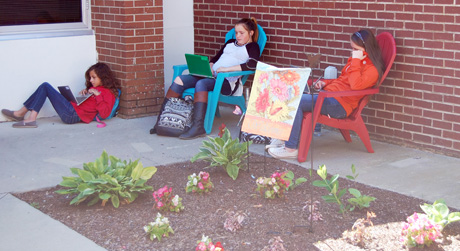Monthly Archives: June 2016
Roper elected to family court seat

COUNTY — Karen Sanchez Roper, attorney and founding partner of Roper Law Firm in Pickens, has been elected to the 13th Judicial Circuit Family Court’s Pickens County Seat 4.
She will succeed the Honorable Alvin D. Johnson, who will retire on June 30 after 20 years of service on the bench. Roper is the first woman to be appointed by the General Assembly as a resident judge for Pickens County.
[cointent_lockedcontent]
Upon assuming her duties on the bench, Roper will cease to be a member of the firm and leave the practice of law. As judge, Roper will preside over cases primarily in the 13th Judicial Circuit, covering Pickens and Greenville counties, but will also hear cases throughout the state as assigned by South Carolina court administration.
The family court has exclusive jurisdiction over all matters involving domestic relationships and decides cases concerning marriage, divorce, separation, custody, visitation rights, termination of parental rights, adoption, support, alimony, division of marital property, name changes and juvenile matters.
Judicial candidates are screened through the Judicial Merit Selection Commission and undergo a law examination, interviews with the South Carolina Bar and the Upstate Citizen’s Committee, and a public hearing before the commission. After qualification and nomination, judges are elected by members of the South Carolina General Assembly.
A native of Valdosta, Ga., Roper received her undergraduate degree from the University of Georgia and her law degree from the University of South Carolina. She established Roper Law Firm in 1997, with a focus on family law litigation. Her husband, attorney Ken Roper, joined the firm in 2001. In addition to her legal work, Roper has served in various leadership roles with numerous civic organizations in the Pickens community, including the Cannon Memorial Foundation Board, Leadership Pickens County, First Steps, Prevent Child Abuse and the Pickens Women’s Association. In 2014, Gov. Nikki Haley appointed Roper to the Anderson-Oconee-Pickens Mental Health Board.
Karen and Ken Roper are the parents of two sons, Carson and Hampton, who attend Pickens High School. She and her family are members of Pickens Presbyterian Church, where she is an elder and trustee.
“I am delighted to have this opportunity to serve my community,” said Roper. “I am humbled by the trust placed in me by the General Assembly, particularly the members of our local delegation, and will work diligently to ensure the family court continues to support and encourage our families.”
[/cointent_lockedcontent]
Solar farm to be constructed on school district property
By Jason Evans
Staff Reporter
jevans@thepccourier.com
COUNTY — A new project at the Career and Technology Center aims to benefit Blue Ridge Electric Cooperative customers alike.
Blue Ridge Electric Cooperative Manager of Government and Community Relations Zach Hinton recently spoke to school board members.
[cointent_lockedcontent]
The cooperative is proposing to lease 3.8 acres of school district property in order to build a 250-kilowatt solar farm.
“We are starting to see solar technology really come into its own right now,” Hinton said. “The technology is just going to continue to get better and better.”
Blue Ridge Electric officials have been told by some members “that they are interested in solar, in some way, shape or form,” Hinton said.
Hinton said the Central Electrical Power Cooperative is made up of 20 power distribution cooperatives from around the state, including Blue Ridge Electric Cooperative. The Central Electrical Cooperative provides transmission lines and buys power for its members. The CEPC recently conducted a statewide survey amongst its members regarding interest in solar power, Hinton said.
“We feel like we need to be on the forefront of this,” Hinton said. “We need to be able to advise our members, give them good, truthful knowledge about what’s out there. Just like any other industry out there, there are good and bad actors. We want to be a trusted source for members.”
The CEPC’s Community Solar Project would see the construction of a community solar farm which would be sold to cooperative members, panel by panel, Hinton said.
“You could purchase a one, two, three-panel section of the farm,” Hinton said. “Whatever power was generated off that panel would be credited to your account. We feel like that’s the most fair and equitable way to do it, so members who aren’t necessarily interested in renewables aren’t going to be subsidizing our other members.”
The proposed site is behind the Career and Technology Center and Chastain Road Elementary School, Hinton said.
“We feel like this is a good fit for several reasons,” Hinton said. “It’s visibility, it’s topography and its location to the Career and Technology Center. “We feel like this is a very good partnership, not just from a location (standpoint) but also from an educational standpoint.”
He said it was an opportunity to “get on the cutting edge of the solar curriculum at the technical school and career and technology and high school level.”
Hinton said Blue Ridge would work through the CEPC “to really pioneer a curriculum that would work with the Career and Technology Center, as well as Tri-County Technical College, to work with installation, monitoring, maintenance, construction of a solar site.”
Hinton said officials hoped to schedule the solar farm site construction with the school calendar so students would have a “firsthand, upfront approach as to what all goes into a site like this.”
Other educational opportunities could be had through Santee Cooper, one of the companies Blue Ridge Electric purchases power from, Hinton said.
“Santee Cooper has already received state accreditation and State Department of Education sign-off on their curriculum for fifth-grade science teachers,” he said. “You can send them down to Santee Cooper, to be trained in that curriculum, and also purchase classroom materials, to allow those teachers to come back and teach that curriculum in their classroom.”
The cooperative would also assist in any facility and ground improvements needed at the proposed site. 1.5 acres would be used for the solar farm itself, with the additional acreage used for buffering, Hinton said.
A small bridge would needed to cross a riverbed at the property.
“We would certainly finance that portion of it,” Hinton said.
Career and Technology Center officials have discussed using a portion of that property for some type of Living Classroom or livestock program. Hinton said the cooperative would be willing to assist with fencing to help with that program if it comes about.
“We want to be a good partner,” Hinton said.
Trustee Henry Wilson said the agricultural department at the Career Center need a bridge that complies with state regulations in order to access that portion of the property for future use.
“They’ve got good land, they’ve just go no way to get to it,” he said. “It sounds like a great idea to me. It’s going to really open some opportunities for those kids to throw up some fences and do some things that farmers do.”
Cooperative officials would like to lease the property for 25 years, at $500 an acre per year. If approved, the CEPC would construct and finance the solar project.
Trustee Brian Swords said he and others “see a lot of education benefits in this.”
“This curriculum already exists at the technical college level,” Swords said. He said additional classes could be added to Tri-County Technical College’s existing program. The solar project could also benefit the district’s mechatronics and electronics program, Swords said.
“I think it’s a great idea,” he said.
Wilson agreed.
“There’s a world of engineers out there who design everything on computer and never get to see the equipment,” Wilson said. “The engineers in our country tend to be really hands on. They tend to grow up in driveways full of equipment that they work on on a day-to-day basis and when it really comes down to it, that type of tangible, practical experience really informs their innovation in a way that you don’t see in a lot of countries that don’t have those advantages.”
Wilson said he’s working on a program designed to get more women into the engineering field.
“The program we’re working on is renewable energy,” he said. “If you try to teach a kid how to play football and they’ve never seen a football, never held a football, don’t even know anybody that plays football, it’s almost impossible. If you’ve not seen a solar application, you’ve got no idea what the size is, the scale is, the way they’re laid out, the simplicity or the complication, it’s really hard to implicitly understand it.
“But if you drive by it everyday and you see it, you see how big it is,” Wilson continued. “Then you can sit down, you can very clearly learn the kilowatt-hour production per square meter, you can look at how much is sitting there and you can roll that back to how much you use at your house. It’s a fundamental ability to really visualize and understand that you’re not going to get when kids have never seen it or don’t even know where an application is.”
Wilson said solar power — and solar panels — will be more prevelent in the future.
“This is certainly a technology that we’re all going to be living with on a day-to-day basis,” Wilson said. “It’s a huge opportunity, just from a visual perspective, teaching kids, saying ‘Hey, that’s something we can do.’
Wilson said the proposal has “immeasurable educational value — and not just for kids.”
“But to the community, so they can see it, so they can understand it,” Wilson said.
Jerry Fleming, with the CEPC, said the total project consists of 5-megawatts being built throughout the state. That 5-megawatt project represents roughly $12M in capital expenses, he said.
“It’s our first foray into solar,” Fleming said.
Trustee Alex Saitta said he’d like to see the district’s cooperation offset with savings on the district’s power bill.
“I think it’d even better PR to say, ‘We do all these things plus we power the building over here — the Career Center — for nothing,” he said. “That’d be even better.”
Cooperative officials said the solar farm would not generate enough power — or revenue — to power a district building.
Wilson agreed.
“The total profit potential for a solar panel that size is fairly limited,” he said. “It’s big enough for a couple of houses.”
Board chair Judy Edwards asked if the school district would incur any costs regarding the solar farm project, either now or in the future.
“No, ma’am, there’s no cost,” Hinton said. “Not that we see.”
“I can’t see why we would not want to do something like this, especially if our students can benefit from this, if there’s no cost to us,” Edwards said.
Board members voted unanimously to accept Blue Ridge Electric’s proposal.
“We look forward to working with you,” Edwards said.
[/cointent_lockedcontent]
Notes from the Arkansas traveler
I’m in Arkansas getting an education — in what, I don’t know. Brooke and Andrew are technology-savvy. They were born knowing how to control the world by hitting a few buttons. It’s my fervent wish that their brains will not be short-circuited through intensive computer knowhow.
They are 8 and 10 now and have grown by leaps and bounds since last summer. As a niece and nephew go, they are the best.
 Their card skills have also developed in a year. They have mastered Crazy Eight and play for blood. I only win every now and then, and I’m not letting down my side either. I’m trying.
Their card skills have also developed in a year. They have mastered Crazy Eight and play for blood. I only win every now and then, and I’m not letting down my side either. I’m trying.
We still play War, but they have added Blackjack to their repertoire, as they wanted to learn a gambling game. Brooke pulled out the poker chips, and we divided them up and had a few practice hands.
They know how to bet, stay, raise, call and fold. They know what it means to be busted. When they want another card, they tell the dealer, “Hit me.”
When their Poppa comes at the end of this week, he will be so pleased. Poker paid his college tuition his junior and senior year, plus what he made in the summer scouting cotton.
It was interesting to see how they bet. Brooke is a risk taker. She will put more on an uncertain hand. Andrew will fold if he thinks he can’t make it.
However, he’ll bet the farm if he has a solid hand and then we fold.
Brooke wants to win, as does he. He will get discouraged if he thinks he’s going to run out of money.
I was amazed at how quickly they can add up the cards. And these are people who just a couple of years ago couldn’t tell a spade from a club.
Now that they have mastered Blackjack, we are working on Gin Rummy. We’re taking it a little bit at a time, as it’s just a bit more complicated. There’s an awful lot to remember. Frankly, their memories are a bit sharper than mine.
Also, I’m ready for bed before they are.
The energy level they are able to maintain is unbelievable.
If we were like cellphones and could see how much juice is left to operate on, theirs would have 95 percent as the lowest level, while mine would show minus-10.
We’ve been hiking, swimming, played putt putt, cooked homemade French fries and baked a three-layer chocolate cake. I considered reading in bed last night, but that’s as far as it got.
It’s turning out to be a wonderful visit. I’ll really miss their bright little faces and busy brains when I go home. Children are a special gift, and I hope I never take them for granted.
Bring Mexican political ethics to South Carolina
Now the most reasonable response to this headline is “Are you nuts? Isn’t Mexican politics riddled with corruption? What could we possibly learn from them?
The answers to these three questions are — “no,” “yes” and “a lot.”
I suppose that there are some who would argue that the answer to the first question is “yes,” but I haven’t been locked up yet, so give me the benefit of the doubt on this one and let’s skip to the more important questions.
[cointent_lockedcontent]
Yes, Mexican politics is shot through with corruption at most every level. The ethical history of politics in this country is not something that the League of Women Voters would want us to emulate but it has only been with the recent flood of drug money that politics has gone from shady to utterly corrupt.
 How bad is it? Really bad.
How bad is it? Really bad.
There is a popular saying that most folks take as an article of faith that says: ‘’He who doesn’t cheat does not get ahead.” (I’ve heard the same sentiment expressed around the Statehouse in Columbia.)
What has happened in Mexico is that the corruption in government has now spilled over into violence and dirty tricks that would make even George Wallace and Richard Nixon recoil. The whole political system is in the process of breaking down.
So, you might ask, what does this have to do with South Carolina and why would we possibly want to import any of this to our state?
Well, the answer is that we would certainly not want to import any of this political disease, but we might want to consider importing some of the political cure that is starting to bubble up from the grass roots.
Let me explain. In the midst of all this corruption, something happened — the people began to take matters into their own hands. Mexican law requires that if enough citizens sign on to a legislative petition, the National Congress has to take up the measure. The law requires 120,000 signatures and to date over 630,000 citizens have signed on to a measure that would make lawmakers report their personal finances.
The initiative is called ‘3 out of 3’ and it requires government officials to 1) reveal all of their financial assets, 2) report any conflicts of interest and 3) prove they are paying their taxes.
As would be expected in a system as adverse to ethics reform as is Mexico the legislation is stalled and going no place. (Sound familiar?)
But, as a result of this citizens’ initiative something has happened in Mexico that would go a long way toward providing ethics reform in South Carolina — some Mexican politicians have begun to voluntarily divulge their financial information even before any legislation is passed requiring them to do so.
Thus far, 560 public servants have disclosed this information including 13 percent of the national Senate and 21 percent of the Chamber of Deputies (like our House of Representatives), 12 state governors and one member of the President’s cabinet.
So now let’s get back to ethics reform in South Carolina. For the third year in a row, the legislature has refused to pass any meaningful ethics reform. (And even the measures they are considering are really ‘Swiss cheese reform’ — more holes than cheese.)
We have seen lots of self-righteous posturing and speeches by Governor Haley and some statehouse politicians about the need for ethics reform — they always blame someone else for the failure of reform efforts to pass.
So, I’d say to these S.C. politicians, follow the Mexican example and voluntarily disclose — 1) your income and assets — how much and from whom, 2) conflicts of interest — what deals are you and your family in, and 3) release your state and federal income taxes — for all the years you are in office.
By percentage, if our Legislature were as ethical as Mexico’s, then six S.C. Senators, 25 members of the House and one member of Gov. Haley’s cabinet would have disclosed this information.
The people of South Carolina should say to the Statehouse politicians: don’t talk about ethics reform — just do it.
The politicians talk the talk, but won’t walk the walk. There is a one word description for this — hypocrite.
A growing number of Mexican politicians have passed the test. To date, best I know, the current number of S.C. politicians who have voluntarily disclosed such complete information is zero.
Yes indeed, let’s bring Mexican political ethics to South Carolina.
Phil Noble is a businessman in Charleston and President of the S.C. New Democrats, an independent reform group started by former Gov. Richard Riley to bring change and reform. He can be reached at phil@philnoble.com.
[/cointent_lockedcontent]
Courier Letters to the Editor 6-8-16
Playing the judgment card
Dear Editor,
When someone is told the truth about something they are guilty of, they sometimes will counter with, “Don’t judge me!”
I call this playing the judgment card. All that has been done is the truth has been shared with them, and obviously they can’t face it. Telling the truth is not passing judgment.
Passing judgment to my understanding would be something like oh, say, a ragged man walked in and you say, “look at that bum.” For all you know, he could be a millionaire. That’s passing judgment, because you are giving a personal opinion not the truth.
The truth will stand when the world is on fire. In other words, should the world come to an end or the universe as well, still the truth would remain for all of eternity. Truth is reality, unlike a lie, which is something that never has or ever will be.
The truth isn’t called bitter or said to hurt for nothing, while a lie is called sweet.
When faced with the truth, own up to it or not, the truth won’t change even if stood up at the gates of Hell. Don’t be playing the judgment card — you’ll lose every time.
Eddie Boggs
Westminster
County plans 2 recreational parks on Twelve Mile River
PICKENS — Pickens County will develop two recreational parks on Norris Highway and Madden Bridge Road.
One part of the property will be used as a put-in spot for kayaking through the Twelve Mile River Gorge, with a take-out spot five miles downstream.
In addition to the kayaking access points, plans call for picnic facilities, a lake boating and fishing access, possible outdoor recreation stores and walking trails between the two different locations.
The entire project is estimated to cost $1.9 million and will be mostly funded by Lake Hartwell Natural Resource Damages Settlement, which compensates for contamination of chemicals called PCBs that were dumped into the river by a manufacturing plant in Pickens years ago. This should cover nearly $1.5 million of the project, leaving roughly $400,000 in uncovered expenses. Pickens County is seeking the remaining $400,000 grant from the Appalachian Regional Commission.
Pickens County Council chairman Jennifer H. Willis and councilmembers Neil Smith and Trey Whitehurst have worked diligently from the beginning of the process. The park will be open and free to the public once construction is completed.
“”I am excited for the people of Cateechee who were affected by the PCBs,” Whitehurst said. “It is good that cleanup funds from the Lake Hartwell Natural Resources Damages Settlement will bring this project to the Cateechee area.”
Pickens County obtained a portion of the proposed park property through eminent domain after the owner failed to honor a signed contract for purchase between the parties. The county’s ownership became final when the property owner failed to file a legal challenge within the time period mandated by state law. The proper compensation to the property owner is still to be determined, but the county has maintained throughout that it would honor the written contract.
Pickens schedules football camps
PICKENS — A series of summer football camps at Pickens High School will kick off next week.
Flight School, a speed and agility camp, will be held June 8, 15, 22 and 29 from 8-9 a.m. The camp, which is for high school players only, will cost $10 per session, or $35 if all four weeks are paid in full by June 8.
The NFL Flag League and Youth Flight School is scheduled for June 8, 15 and 22. The event will run from 9 a.m.-noon each of those days, with Youth Flight School from 9-9:45 a.m., mini-camp from 9:45-10:15 a.m. and flag football games from 10:15 a.m.-noon. The $90 cost for the camp will include lunch, a free youth day camp on June 29, Youth Flight School and an NFL flag jersey.
The Blue Flame Youth Day Camp for all skills is set for 9 a.m.-5 p.m. on June 29. The camp will cost $30, which will cover lunch, a snack and Youth Flight School for the day.
Checks should be made payable to the Pickens TD Club, and payments should be brought on the first day of camp.
For more information, contact Pickens High School football coach John Boggs at johnboggs@pickens.k12.sc.us or (864) 985-3104.
Courier Obituaries 6-8-16

EARLE L. YOUNGBLOOD
PICKENS — Earle L. Youngblood, 87, of Pickens, passed away on June 1, 2016, at St. Francis Hospital-Downtown.
Born in Pickens County on Dec. 9, 1928, he was the youngest and last surviving child of the late John and Maude Kelley Youngblood and a member of Grace United Methodist Church.
[cointent_lockedcontent]
A retiree of the Pickens County Treasurer’s Office, Mr. Youngblood was the founder of Youngblood Real Estate and was the owner of State Farm Insurance Agency of Pickens since 1950. He was a board member of Pickens Savings and Loan, an active member of the community and an avid golfer. Mr. Youngblood was a U.S. Navy veteran.
Surviving are his wife, Martha Elizabeth “Betty” Youngblood; a son, Daniel E. Youngblood (Lynn) of Easley; a daughter, Pam Youngblood Martin of Pickens; seven grandchildren, George A. Martin Jr. (Lan), Jason E. Martin, Justin B. Martin, Lia Youngblood Ownbey; Daniel E. Youngblood Jr., J. Tyler Youngblood and Sarah Grace Youngblood; and nine great-grandchildren.
In addition to his parents, Mr. Youngblood was predeceased by seven siblings and his son-in-law, George A. “Bubba” Martin.
Services were held June 3 at Grace United Methodist Church. Entombment will be private.
Memorials may be made to Grace United Methodist Church Endowment, 309 E. Cedar Rock Street, Pickens, SC 29671. A message of condolence may be expressed to the family by visiting www.dillardfunerals.com
CLARA A. KOPP
LIBERTY — Clara A. Coffee Kopp, 78, of 9 Pinewood Drive died Wednesday, June 1, 2016, at Baptist Easley Hospital in Easley.
Born in St. Petersburg, Fla., she was the wife of William H. Kopp Jr. and a daughter of the late Hal C. and Clara N. Garlington Coffee. She was a homemaker who dearly loved her grandchildren. She was a member of Fellowship Community Church.
Surviving in addition to her husband are her three daughters, Deborah Reinhold of Largo, Fla., Sandi Hoots (Ruess) of Liberty and Patricia Boccabello of Liberty; two sons, Robert J. Sherman (Sarah) of Liberty and William H. Kopp of St. Petersburg; 10 grandchildren; and 17 great-grandchildren.
In addition to her parents she was predeceased by one sister; and one brother.
Funeral services will be held at a later date in St. Petersburg. Burial will be at Royal Palm Cemetery in St. Petersburg.
Liberty Mortuary is handling arrangements locally.

JACK MONROE ASHMORE
PICKENS — Jack Monroe Ashmore passed from this life to be with His Lord on Tuesday, May 24, 2016.
He was born on May 13, 1940, the son of Ida Lee Ashmore and William Ashmore, who predeceased him.
His survivors include his loving wife, Cheryl Ashmore; a brother, Riley Ashmore of Conestee; a sister, Mary Butler of Pickens; two nephews, Tony Butler and Tim Butler; and a niece, Jane Redden of Anderson.
The funeral Mass was held June 3 at Holy Cross Catholic Church in Pickens, celebrated by Rev. James Dubrouillet, followed with burial at Antioch Christian Church cemetery, Greenville.
ROBERT GARNER
EASLEY — Robert Clayton Garner, 78, formerly of Easley, died Saturday, June 4, 2016 at Pardee Hospital in Hendersonville, N.C.
Born in Anderson, he was the widower of Debra Stewart Garner, and a son of the late Andrew and Myrtle Anthony Garner.
He retired from Robinson Funeral Home where he worked in maintenance for over 40 years, and was a member of Dacusville Church of God of Prophecy.
Surviving are three sons, Scott, Tony and Andy Garner; two sisters, Sarah Rice (Malcolm) and Ruth Mosley; a sister in law, Doris Garner; and a special niece, Rita Burgess (Greg). In addition to his wife and parents, he was preceded in death by two brothers, Tommy and Arthur Garner.
Funeral services to honor Robert’s life will be 2 p.m. Wednesday, June 8, in the Liberty Mortuary Chapel. Burial will be at Greenlawn Memorial Park. Visitation will be one hour prior to the service at the mortuary.
The family will be at their respective homes. Liberty Mortuary is handling arrangements.
KENNETH M. GILSTRAP
EASLEY — Kenneth Michael Gilstrap, 67, passed from this life on Thursday, June 2, 2016, at Baptist Easley Hospital.
Kenneth was born in Pickens County, a son of the late Glenn and Edna Gilstrap. He was retired from the City of Pickens Water Department and he was a Baptist.
Survivors include a daughter, Crystal Ledford (Gary Neal) of Inman; a son, Rev. Stan Crowe (Darla) of Six Mile; seven grandchildren; and brothers, Wayne Gilstrap of Dacusville and Donnie Gilstrap and David Gilstrap, both of Pickens.
Services were held June 5 in the Dillard Funeral Home chapel, with burial following at Hillcrest Memorial Park and Gardens.
CHRISTINE MANN HOOPER
EASLEY — Mrs. Christine Mann Hooper, 89, wife of the late Tilmon Perry Hooper, passed away Sunday, June 5, 2016, at her home.
Born in White County, Ga., the daughter of the late Olivia Sheriff Greene, Mrs. Hooper was a homemaker and a member of Jones Avenue Baptist Church.
Surviving are a son, Kenny Perry Hooper of Pickens; five daughters, Linda Marchbanks, Eleanor Sanders (Jerry), Cathy Phillips (Ronnie), Patsy Medlin (William), all of Easley, and Martha Holliday (Larry) of Six Mile; a son-in-law, Bobby Mauldin (Jolyn) of Easley; 12 grandchildren and 14 great-grandchildren. In addition to her husband and mother, Mrs. Hooper was predeceased by a son, Eugene Hooper; a daughter, Shirley Mauldin; a son-in-law, Ronny Marchbanks; a daughter-in-law, Annette Hooper; and a grandson, Scott Medlin.
Funeral services will be at 2 p.m. Wednesday, June 8, 2016, at Jones Avenue Baptist Church. Burial will follow in Greenlawn Memorial Park.
Memorials may be made to the American Cancer Society, 154 Milestone Way, Greenville, SC 29615. The family is at the home.
Condolences may be expressed online at www.robinsonfuneralhomes.com or in person at Robinson Funeral Home-Downtown, which is assisting the family.
[/cointent_lockedcontent]
DAR recognizes outstanding students
UPSTATE — The Fort Prince George Chapter of the Daughters of the American Revolution recently held its annual Awards Day.
Awards recognize outstanding students from local middle and high schools in the categories of American history, JROTC and Good Citizen.
Nominated by teachers and counselors, each student receives a certificate of excellence, a lapel pin or medal and a gift card. Students and teachers are invited to attend a DAR meeting to be introduced as friends and family join in to congratulate them. Anne Kilpatrick, Regent, noted that “many students are excited to receive the award because their mother or grandparent had won it in the past.”
The awards are all part of the DAR’s commitment to the mission of encouraging education, historic preservation and patriotism.
This year’s winners are:
American History — Carolyn Nations, American History Committee Chairman
Easley Middle School — Olivia Durham
Liberty Middle School — Nora Whelchel
Pickens Middle School — Bryce Pope
JROTC — Karen Garrett, National Defense Committee Chairman
Liberty High School — Daniela Vallecillo
Pickens High School — Cadet Major Carole Thomas
DAR Good Citizen — Julie Thompson, DAR Good Citizen Committee Chairman, Carolyn Nations, Presenter
Easley High School — Reilly Gray Kelley
Liberty High School — Courtney Bryant
Pickens High School — Riley Nicholson
Students build garden at Edwards Middle School

Courtesy photo
A group of R.C. Edwards Middle School students recently gave back to the school by building a garden on the campus. Pictured are Austin Angeledes, Nicholas O’Donald, Julio Sanchez, Shane Craig, Caleb Martinez, Camryn Heinselman, Deputy Shannon Ellenburg, Eli Story, Cassie Lookhoff, Jacob Medlin, Jade Smith, Jordan Black, Nick Watt and Dakota Owens.
By Jason Evans
Staff Reporter
CENTRAL —There’s a new space to learn and relax at R.C. Edwards Middle School, thanks to a group of students who wanted to give back.
Students planted a garden and built a picnic table in a patio area at the school.
The students who took part in the project are Austin Angeledes, Nicholas O’Donald, Julio Sanchez, Shane Craig Caleb Martinez, Camryn Heinselman, Eli Story, Cassie Lookhoff, Jacob Medlin, Jade Smith, Jordan Black, Nick Watt and Dakota Owens.

Courtesy photo
Jacob Medlin, left, and Nick O’Donald team up to work on a picnic table.
School resource officer Shannon Ellenburg worked with the students on the project.
“They had this area out back that had been basically run down,” she said. “They went in and they cleaned all this out.”
One girl built a gnome garden.
“They planted all these flowers in both the beds, (and) they built the picnic table,” Ellenburg said.
Work began on the project in March. Ellenburg applied for a grant from the school’s PTSO organization and was approved.
“All the funds came from the parents’ association,” she said.
Although school is now out for summer, it didn’t take long for the garden to become a popular spot.
“Now that it’s done, you see some of the classes are going out there,” Ellenburg said before the end of the school year.
Special education students have also used the garden often — it’s located right across from their classroom.
The garden also became popular with some teachers, who often took their planning period work to there.
Courtesy photos
Teachers often bring classes to the garden for lessons. The spot is also a popular one for teachers during their planning periods. The school’s wireless network allows students to do their classwork in the new garden.
“They celebrate birthdays every month, and when they do their little snack parties, they go out there,” Ellenburg said. “The whole school has really taken part in it.”
Students keep the garden neat and tidy, she said.
“They pretty much take care of it,” Ellenburg said. “They’re really proud of it.”
Principal Jeff Duncan said he’s glad the students have had the opportunity to give back to the school.
“Through that, they’re learning responsibility, they’re learning about citizenship, they’re learning about giving back to the greater good,” he said.
 Duncan said students can do their schoolwork in the garden, thanks to the school’s WiFi network.
Duncan said students can do their schoolwork in the garden, thanks to the school’s WiFi network.
“It’s a very unique space that they’re able to work in,” he said. “They’ve been able to do some really neat things.”
He said SROs like Ellenburg give students a perspective on law enforcement counter to ones often presented in the media.
“It really is an opportunity, with her as our school resource officer, to build some positive relationships very early on, in their young adult lives, about how they can interact with law enforcement,” Ellenburg said. “It doesn’t have to be anything that’s negative — it can be positive that they can get back from that. It’s about relationships.”



























